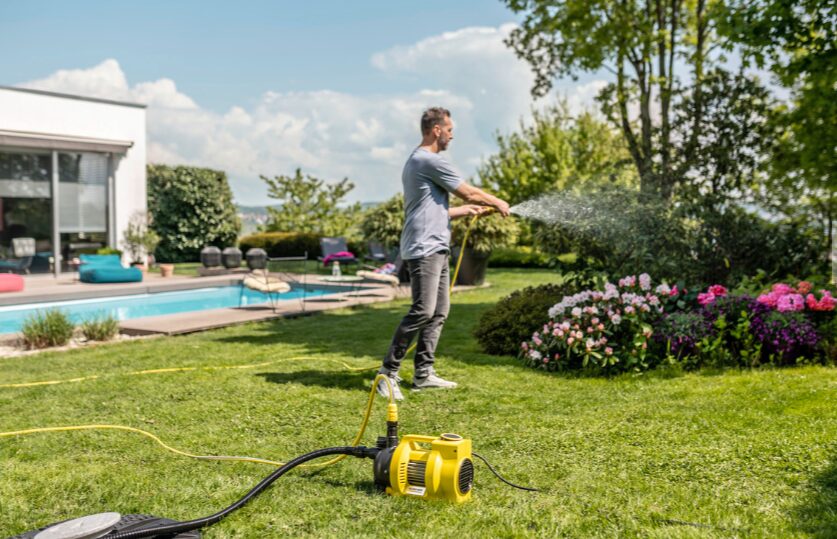In the realm of gardening, having the right tools can make all the difference between lush, thriving greenery and a lackluster landscape. Among these tools, a garden water pump stands out as a crucial element, ensuring your plants receive the hydration they need, especially during dry spells or in areas with irregular rainfall. However, with a myriad of options available in the market, selecting the ideal garden water pump can be daunting. Fear not, as we embark on a journey to demystify the process and help you choose the perfect garden water pump for your needs.
Assess Your Garden’s Requirements
Before diving into the world of garden water pumps, take a moment to evaluate your garden’s unique requirements. Consider factors such as the size of your garden, the types of plants you cultivate, and the water source available. Understanding these elements will guide you towards the most suitable pump for your garden.
Determine Pump Type
Garden water pumps come in various types, each designed for specific purposes. The two primary categories are submersible pumps and surface pumps.
- Submersible Pumps: These pumps are submerged in water and are ideal for extracting water from wells, ponds, or underground sources. They are often more efficient and quieter but require proper installation and maintenance.
- Surface Pumps: Also known as centrifugal pumps, surface pumps are placed above ground and are suitable for pulling water from shallow sources like tanks or streams. They are easier to install but may not be as efficient as submersible pumps in certain scenarios.
Choose the pump type based on your water source and the depth from which you need to draw water.
Consider Pump Capacity and Pressure
When selecting a garden water pump, it’s crucial to consider not just the size of your garden but also the distance the water needs to travel. The total dynamic head (TDH) calculation is essential as it accounts for both the vertical lift and friction losses in the pipes. By understanding this metric, you can ensure that your chosen pump has the capacity and pressure required to effectively irrigate your entire garden.
Investing in a pump that meets the necessary TDH and flow rate specifications will result in efficient water distribution and optimal plant growth. It’s important to carefully evaluate these factors to avoid issues like inadequate water pressure or insufficient coverage. By choosing a well-matched pump, you can enjoy a thriving garden with minimal maintenance and maximum convenience.
Don’t overlook the significance of calculating TDH when selecting a garden water pump. This value serves as a comprehensive indicator of the pump’s capability to deliver water where needed efficiently. Prioritizing this aspect will not only enhance your irrigation system’s performance but also contribute to overall water conservation efforts in maintaining a healthy garden ecosystem.
Evaluate Power Source Options
Garden water pumps can be powered by electricity, gasoline, diesel, or even solar energy. Consider the availability of power sources in your area and the level of convenience and sustainability you desire. Electric pumps are commonly used for smaller gardens and provide consistent performance, while gasoline or diesel engine pumps offer portability and are suitable for remote locations. Solar-powered pumps are environmentally friendly and cost-effective in the long run, albeit with higher upfront costs.
Factor in Maintenance and Durability
Regular maintenance is the key to ensuring that your garden water pump operates at its peak performance. Opting for pumps constructed with durable materials and featuring easily accessible components can streamline the maintenance process, saving you time and effort in the long run. When selecting a pump, it’s crucial to consider warranty options and customer reviews to assess its reliability and longevity. By investing in a high-quality pump with user-friendly maintenance features, you can enjoy a consistently efficient water supply for your garden without facing frequent breakdowns or malfunctions.
Not all water pumps are created equal when it comes to durability and ease of maintenance. Prioritizing these factors during your purchase decision can make a significant difference in the overall longevity and functionality of your garden water pump. Customer testimonials provide valuable insights into real-life experiences with specific models, helping you make an informed choice based on actual user feedback. By taking proactive steps to select a well-built pump with convenient maintenance features, you can ensure that your gardening efforts are well-supported by a reliable and efficient water supply system.
Budget Considerations
Lastly, establish a budget for your garden water pump investment. While it’s tempting to opt for the cheapest option available, prioritize quality and performance to avoid frequent replacements or repairs in the long term. Compare prices from reputable brands and weigh the features and benefits offered by each pump within your budget range.
In conclusion, choosing the right garden water pump involves careful consideration of your garden’s specific requirements, pump type, capacity, power source, maintenance needs, and budget constraints. By following these guidelines and conducting thorough research, you can select a garden water pump that ensures efficient irrigation and promotes the health and vitality of your garden for years to come. Happy gardening!
Read also: Corteiz



